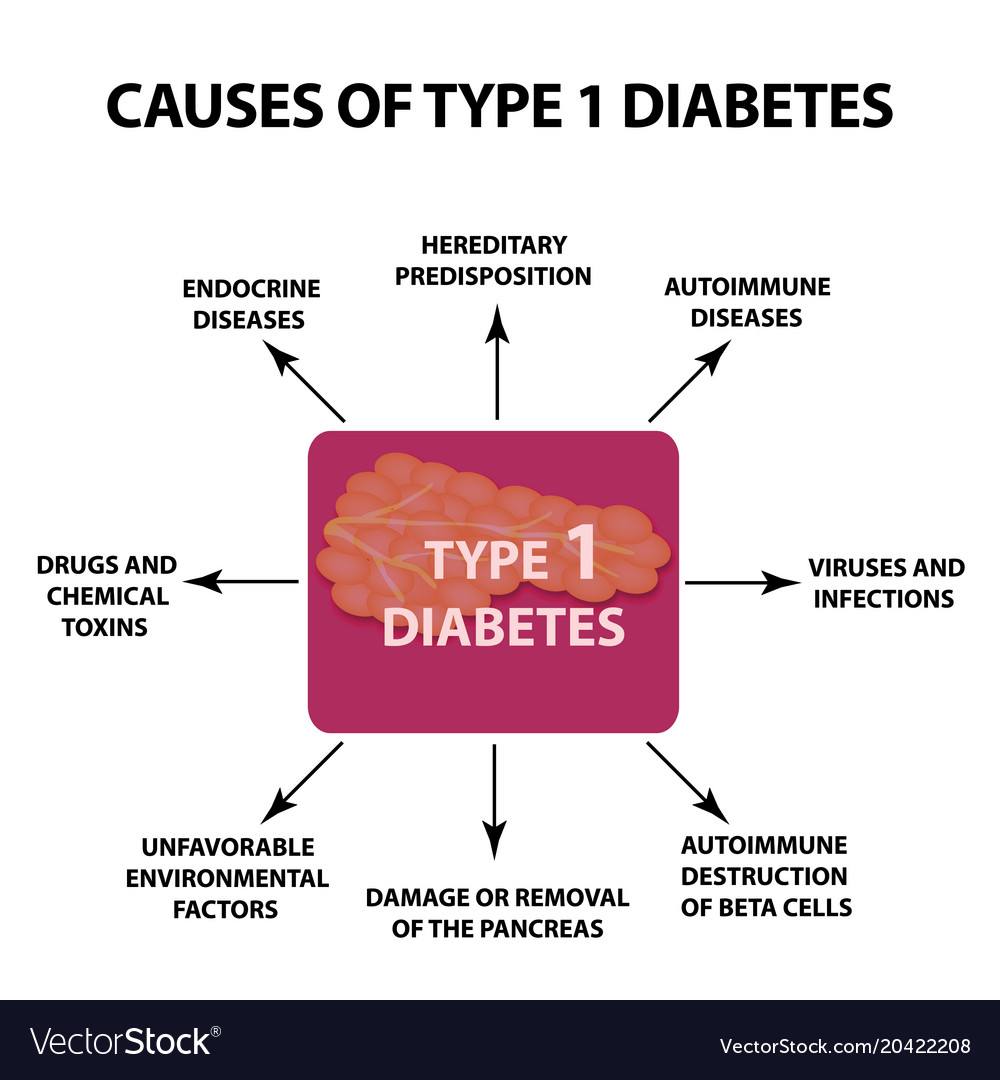What Causes Type 1 Diabetes Genetically
Diabetes is a chronic health condition that affects millions of people worldwide. It is characterized by high levels of blood glucose, also known as blood sugar. There are two main types of diabetes – type 1 and type 2. In this article, we will focus on type 1 diabetes and its causes and aetiology.
Type 1 Diabetes Mellitus
Type 1 diabetes, also known as insulin-dependent diabetes or juvenile diabetes, is a chronic condition in which the pancreas produces little or no insulin. Insulin is a hormone that helps the body to use glucose for energy. People with type 1 diabetes need to take insulin injections or use an insulin pump to survive.
Unlike type 2 diabetes, which is often caused by a combination of genetic and lifestyle factors, the causes of type 1 diabetes are not well understood. However, researchers believe that both genetic and environmental factors may play a role in the development of the condition.
The Aetiology of Type 1 Diabetes Mellitus
The aetiology of type 1 diabetes is complex and multifactorial. A number of genetic and environmental factors have been linked to the development of the condition.
Genetic factors:
Research has shown that type 1 diabetes has a strong genetic component. People with a family history of the condition are at a higher risk of developing it themselves. However, the exact genes involved are not yet fully understood.
Environmental factors:
A number of environmental factors have been linked to the development of type 1 diabetes, including:
Viral infections: Certain viral infections, such as the Coxsackie B virus and the rubella virus, have been linked to the development of type 1 diabetes. It is believed that these infections may trigger an autoimmune response that leads to the destruction of beta cells in the pancreas.
Diet: A diet high in processed foods and sugar has been linked to an increased risk of developing type 1 diabetes. This is thought to be because these foods can cause inflammation in the body, which can damage the beta cells in the pancreas.
Exposure to toxins: Exposure to certain toxins, such as those found in pesticides and industrial chemicals, has been linked to an increased risk of developing type 1 diabetes. It is believed that these toxins may trigger an autoimmune response that attacks the beta cells in the pancreas.
Stress: Chronic stress has been linked to an increased risk of developing type 1 diabetes. This is thought to be because stress can increase inflammation in the body, which can damage the beta cells in the pancreas.
The Importance of Understanding the Aetiology of Type 1 Diabetes Mellitus
Understanding the aetiology of type 1 diabetes is essential for developing better treatments and, ultimately, finding a cure for the condition. By identifying the genetic and environmental factors that contribute to the development of type 1 diabetes, researchers can develop new therapies that target these factors directly.
Additionally, understanding the aetiology of type 1 diabetes can help individuals at high risk of developing the condition to take preventive measures. For example, if someone has a family history of type 1 diabetes, they may be able to reduce their risk by adopting a healthy lifestyle, such as quitting smoking, eating a healthy diet, and getting regular exercise.
Conclusion
Type 1 diabetes is a chronic condition that affects millions of people worldwide. While the exact causes of the condition are not well understood, it is believed that both genetic and environmental factors play a role in its development. By understanding the aetiology of type 1 diabetes, researchers can develop better treatments and preventive measures, ultimately improving the lives of people living with the condition.
References
- “Type 1 Diabetes (Juvenile).” Mayo Clinic, Mayo Foundation for Medical Education and Research, 28 Feb. 2018,
- Orban, Tihamer. “The Pathogenesis of Type 1 Diabetes Mellitus.” Medscape, 3 June 2018,
- Koivisto, Outi. “Chemical Exposure Linked to Type 1 Diabetes.” Diabetes Research and Clinical Practice, vol. 121, 2016,
- “Diabetes Mellitus.” National Institute of Diabetes and Digestive and Kidney Diseases, U.S. Department of Health and Human Services,
Type 1 Diabetes Mellitus Infographic

This infographic shows the causes of type 1 diabetes in a visually appealing way. It highlights key genetic and environmental factors that have been linked to the development of the condition.
Biochemistry Class Notes on Type 1 Diabetes Mellitus
These class notes provide an in-depth overview of the biochemistry of type 1 diabetes mellitus. They explain the role of insulin, the pathophysiology of the condition, and potential treatments.